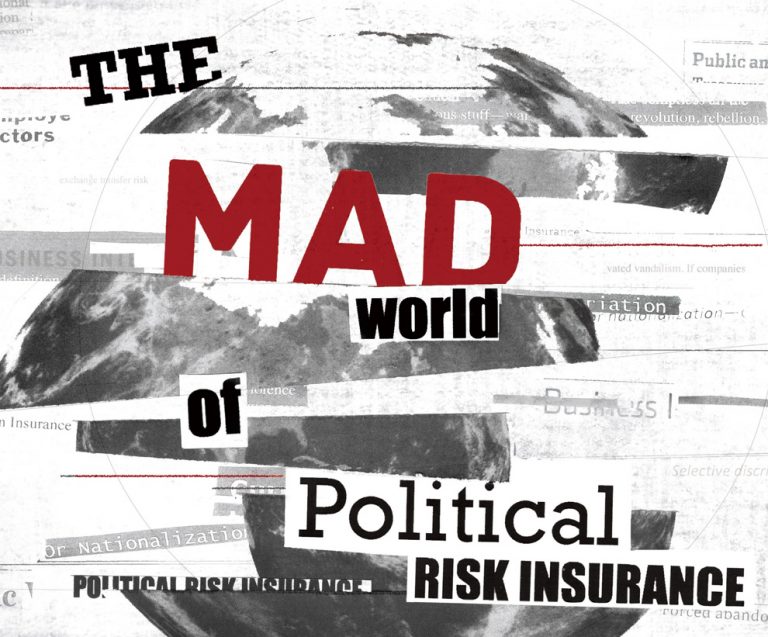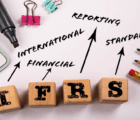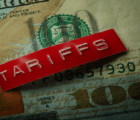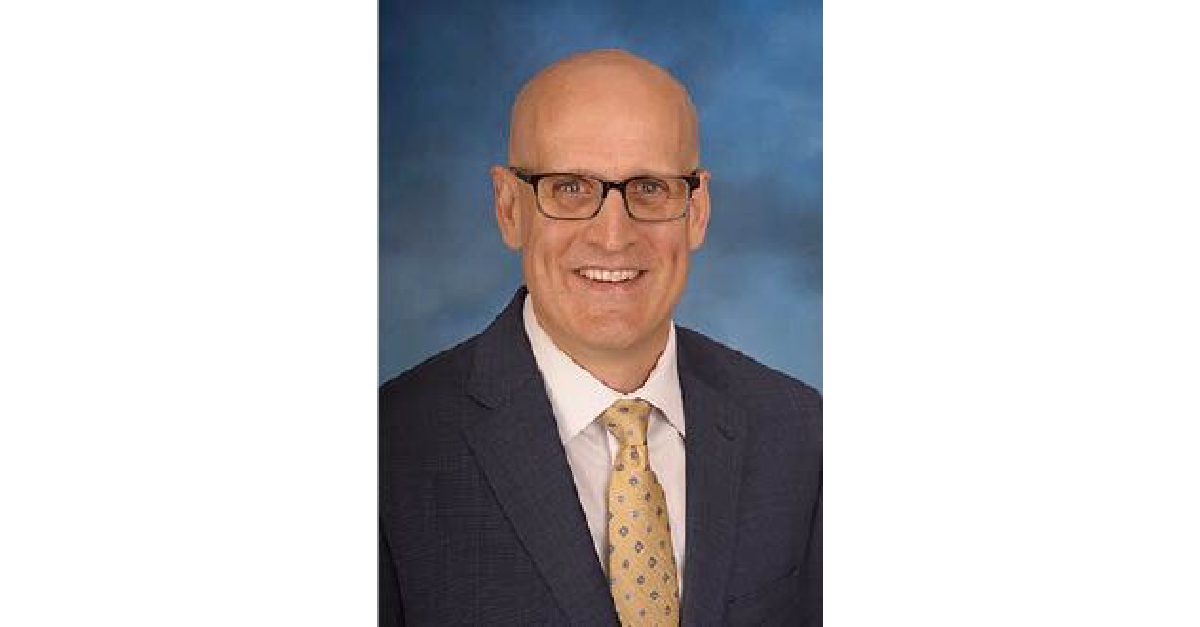
By the time you need it, it may be too late to get it.
It could have been a scene from one of its film productions: In October, 2014, 12 armed men in balaclavas burst into the administrative offices of the Yalta Film Studio on the Black Sea and made everyone lie on the floor. The gunmen had been sent by the Crimean government, newly created in the wake of Russia’s recent invasion. They were there to expropriate the studio.
Fifteen years ago, when Crimea was part of the Ukraine, a pair of Moscow businessmen, the Arshinov brothers, paid $3 million for the ailing studio and invested substantially in it over the years. But the Crimean government said that sale was illegal. The brothers would be entitled to only $100,000 in compensation.
It was a substantial loss, and there wasn’t much the brothers could do about it unless they had a political risk insurance policy. Like any insurance policy, however, by the time you know you need it, if you don’t already have it, it’s too late to get it.
Risk versus Reward
Though some may debate the validity and the existence of global warming, it’s hard to deny the existence of globalization.
“Globalization is not just some economic fad,” wrote New York Times columnist Thomas Friedman in The Lexus and the Olive Tree in 1999. “It is an international system — the dominant international system that replaced the Cold War system after the fall of the Berlin Wall. The ‘post-Cold War world’ should be declared over. We are now in the new international system of globalization.”
Globalization is a system of interconnections, mostly of the free-market variety, which can be highly advantageous for both established economies seeking to diversify and developing economies seeking to grow. But it can also be extremely dangerous for enterprises that want to invest in those economies. Combine that interconnectedness with an increasing volatility, and one unstable card can threaten the entire house.
“There is anxiety in the global financial system,” wrote Swedish economist and politician Anders Borg in advance of the 2015 Davos Summit of the World Economic Forum, an international institution for public-private cooperation. He went on to say that the Eurozone fiscal deficit would be below three percent for 2015 and that “some of the countries in crisis, particularly Spain, Ireland and Latvia, have made substantial progress.” The prospects for growth, he said, are promising.
So why the anxiety? Borg cites a couple of reasons: out-of-sync monetary policies that create turmoil in currency markets, uncertainty in emerging economies, and geopolitical risk — conflicts in Syria, Iraq, Ukraine and other places almost too numerous to mention.
There’s no shortage of possible calamities that can befall a company that dares to do business in or with a foreign country. There are two kinds of basic coverage a company will need to protect itself: contract repudiation (or contract frustration) insurance and political risk insurance.
“It is genuinely difficult for businesses to navigate a global environment … [given] slow recovery and clear geopolitical and economic risks,” he concluded. “And given that banking is also going through an enormous regulatory overhaul, it’s no wonder there is anxiety. But let’s be clear: it’s an improvement on the crisis-related depression we have seen … over the past few years.”
As of the Davos Summit in January 2015, Greece, though long-troubled, had not yet melted down. Negotiations with Iran were ongoing, but the prospect of the sanctions being lifted was distant at best. And President Obama had only just declared a change of U.S. policy with Cuba. Each of these developments carries with it tremendous potential opportunities for investors. But each also carries potential risks — perhaps big ones.
“Who knows where the next crisis will be?” says John Lavelle, head of political and credit risk, North America, the Willis Group, New York City. “Third-world countries are obvious risks but are they the only risks? Not anymore. To [paraphrase] an old movie, ‘we live in a mad, mad, mad, mad, world.’”
There’s no shortage of possible calamities that can befall a company that dares to do business in or with a foreign country. There are two kinds of basic coverage a company will need to protect itself: contract repudiation (or contract frustration) insurance and political risk insurance.
Contract repudiation insurance will protect a company if, for instance, it enters into a contract with a foreign government to build a piece of equipment. Assume it will take the company one year and a million dollars to build the equipment, at which time it will ship it to the client, and the client will pay the company. But six months into the contract, things change. The government decides its budgetary priorities have shifted and changes its mind. Or the entire government is replaced by a new one that now doesn’t need this piece of equipment anymore. Or events in the country have spiraled out of the government’s control, and paying bills to foreigners is the last thing on its agenda.
In the meantime, the company is out a million dollars. If it had carefully negotiated a contract with a qualified insurer before it had signed the contract with the foreign government, the loss would have been covered.
Political risk insurance protects against a whole host of scenarios, all of which must be carefully defined and included in the language of each policy. And, of course, both kinds of policy must be purchased in anticipation of such events, not in their aftermath.
Here is a rundown of the kinds of events that can be covered by political risk insurance:
Expropriation or nationalization — defined as “the illegal takeover of an insured’s operation without compensation” — is what happened to the Arshinov brothers’ film studio. It can also include the government-ordered destruction of a foreign business’s assets.
In 2012 an analysis by the Venezuelan Confederation of Industries determined that between 2002 and 2012 the government of Hugo Chávez in Venezuela took over 1,168 foreign and domestic companies. They included operations in oil and gas, aluminum, cement, gold, iron, steel, farming, transportation, electricity, food production, banking, paper and the media.
Forced abandonment. When political violence causes a company to abandon its foreign assets, the company not only loses the assets, but also incurs the costs of evacuating personnel. Similarly, when the home country requires the insured to permanently divest itself of all or part of its foreign enterprise, it’s called forced divestiture.
Selective discrimination. “Let’s say I own a local utility company in a foreign country and I’m the only foreigner in that particular business,” posits Lavelle. “The government comes in and, simply because I’m a foreigner, decides to hit me with a tariff. But the tariff doesn’t apply to the local owners of power plants, only to the foreign-owned.” The foreign owner is now at a competitive disadvantage, which could carry a significant cost.
Political violence. This comprises all the obvious stuff — war, riot, civil war, revolution, rebellion, insurrection, coup d’état, sabotage, terrorism, strikes or other acts of politically motivated vandalism. If companies doing business in Iraq, Syria or Egypt didn’t already have this coverage, they’re probably out of luck.
Business interruption. According to the definition used by the Willis Group, this is a financial loss caused by political violence, confiscation, expropriation or nationalization. Losses are calculated as the aggregate of estimated net profits during the policy period, the cost of trying to continue the normal operation of the foreign business and continuing expenses the business incurs in normal times, such as salaries and leases.
Currency inconvertibility or exchange transfer risk. This occurs when a foreign government imposes orders or regulations that prevent the insured from converting local currency into its domestic currency or from transferring its domestic currency from a foreign enterprise. This typically happens in emerging markets during financial crises. Companies with investments in Greece, Spain and other precarious Eurozone countries are certainly concerned about this risk.
Public and Private Markets
The whole idea of political risk coverage arose as a government program to protect investors in post-war Europe and Asia under the Marshall Plan. In the 1960s, that evolved into the Agency for International Development (AID), which incorporated expropriation and war-risk coverages, mostly in developing countries. In 1971 an independent government agency, the Overseas Private Investment Corporation (OPIC) was created to catalyze development-focused investment by U.S. companies in emerging market countries. Today, OPIC’s finance tools — including political risk insurance — can support development investment in more than 160 countries. In 2014 alone, OPIC political risk insurance supported increased lending activity in Turkey, Romania and Ukraine; the largest wind farm in Kenya; and humanitarian aid services in the Middle East. OPIC also financed numerous other private-sector projects in Africa, Latin America, the Middle East, Europe and Asia.
“OPIC is the U.S. government’s development finance institution and offers development tools of financing, investment funds and political risk insurance to U.S. private sector investors,” says OPIC spokesman Charles Stadtlander.
OPIC is funded by an annual administrative appropriation from Congress; for the last two years that’s been about $62 million. Using this OPIC operates a development investment portfolio of about $18 billion in financing and insurance that has generated income for the past 37 straight years, according to Stadtlander. “That goes back to the U.S. Treasury. Last year we gave back $358 million; the year before, it was $426 million. All on an annual appropriation of just over $60 million that allows us to operate that $18 billion portfolio, which is having an outsized development impact overseas.”
Several insurance products OPIC pioneered give investors the right to recover losses from a foreign government’s failure to meet contractual obligations.
“It applies more to financial contract compliance rather than political violence,” says John Moran, OPIC vice president for insurance. “We have a bilateral agreement in each country where OPIC operates that gives us certain rights where there’s been a violation of international law by the home government. We have the right to recover from the government when we’ve paid out a valid claim. That enables us to charge rates in places like Liberia, Ukraine, Afghanistan, Pakistan and Iraq that private insurers can’t.”
According to OPIC’s 2014 claims report, the agency has made 295 insurance claim settlements since 1971 totaling $976.8 million. Cash recoveries on claims total $754 million. Additional recoveries in the form of OPIC guaranteed obligations bring the total to $980.1 million — 100 percent of total claim settlements.
Most countries in the Organization for Economic Co-operation and Development (OECD) have established similar government agencies that protect their domestic companies from political risk in foreign markets. They include NEXI in Japan, SINOSURE in China, EDC in Canada, ECGD in Britain, COFACE in France and EFIC in Australia. In 1987 the World Bank created the Multilateral Investment Guarantee Agency (MIGA) to provide political risk coverage to its member countries.
Lloyd’s of London and the American International Group (AIG) are primarily responsible for taking the political risk market private in the mid-1970s, and the market has been growing significantly ever since. These days the main private-market players include Lloyd’s, Sovereign, Chubb and Zurich, among many others.
Rule of Law is Fundamental
What countries are most prone to political risk? Which ones are insureds most concerned about? As has already been pointed out, the world is an increasingly wild and crazy place — potential risks can lurk just about everywhere. How do underwriters assess those risks?
First, they look at who the client is, its experience in a country with similar projects, and the extent to which the client is willing to share the risk with underwriters.
They also look at the structure of the transaction, the length of the requested policy period, the terms of repayment and the type of cover being requested.
Next is the project itself. Is it a priority for the country? To what sector does it belong? Are the key counterparties involved financially viable? What assets are being covered? Where are they located? And if political violence and terrorism coverage is involved, what security measures are in place?
“The country of risk also plays a role, whether it’s countries we already cover or ones that we may be thinking of,” explains Lila Rymer, head of U.S. trade credit and political risks underwriting for the Beazley Group, NYC. “At Beazley, aside from sanctioned countries, we rarely stop considering new deals blanket-close in a country. We differentiate ourselves by pursuing what we deem to be good risks in some of the most challenging countries. We’ll look at each deal individually and listen to why the client thinks it’s attractive. Of course, in a relatively benign country we’ll look at longer policy periods, larger line sizes and cover for a broader range of sectors or insureds. In a more challenging country we might look at shorter periods, smaller line sizes, and [we might] limit our appetite to more experienced clients.”
The world is an increasingly wild and crazy place — potential risks can lurk just about everywhere. How do underwriters assess those risks?
In spring 2015, the Willis Group published “Marketplace Realities 2015,” which listed and briefly evaluated some of the world’s hot spots “where the risks are significant.” The locations included Iraq, Russia, former Soviet states such as Georgia, Kazakhstan and Ukraine, Brazil, Argentina, China, Mexico and Turkey. Mexico and Turkey are both OECD countries, as is Greece, which should probably be added to this list.
According to the 2014 Global Resilience Index published annually by Oxford Metrica, an independent analytics and advisory firm, Norway is the most reliable country in the world to invest in, while Venezuela brings up the rear of the list at number 130. Ukraine and Kazakhstan dropped in the rankings more than any other country in the world. Not surprisingly, Greece fell from 54th position to 65 in 2014.
Another tool useful to insurers and insureds is the Corruption Risk Index developed by Verisk Maplecroft, a global risk analytics, research and strategic forecasting company headquartered in the United Kingdom. Corruption has become an increasing problem, particularly among developing economies (sub-Saharan Africa, Iraq, Libya, etc.), but also in more established ones such as Russia, India, China and Brazil.
According to Charlotte Ingham, senior political risk analyst at Maplecroft in London, the risks posed by high-level corruption and a culture of impunity from human rights and environmental abuses may not be as obvious as confiscation or political violence, but they can pose long-term risks to a company trying to do business in such countries.
“The rule of law underpins the entire investment climate of any given country,” says Ingham. “Rule of law and corruption go hand in hand. When looking at emerging markets or frontier economies, access to remedy if something goes wrong — and a degree of certainty in terms of what’s going to happen next — is fundamental. In addition to the reputational risk of being associated with a corruption scandal, popular dissatisfaction with the level of corruption also plays a role in driving unrest and instability, creating operational challenges.”
Strategic, Not Tactical
So what about those two big question marks as of this writing, Iran and Cuba? One is attempting to loosen crippling international sanctions and the other is taking steps to emerge from an equally crippling U.S. embargo. Both could be extremely attractive to a certain kind of investor.
“In places like Iran, the underwriters will use their assessment tools,” says Lavelle. “They subscribe to market intelligence and conduct a microeconomic review of the country to assess its political stability. But when going into a market like Iran, which had been under sanctions for so many years, underwriters will always take a go-slow approach.”
Ingham points out that Iran’s highly educated workforce would add to its attractiveness if sanctions are lifted.
“Cuba is still coming on stream,” says Gary Mendell, president of Meridian Finance Group in Santa Monica, California. “I don’t think anybody knows what the rules will be but we’re watching it closely. There’s no clear message yet from the government.” But even though the U.S. has been barred from that market in the past, European underwriters were never under the same restrictions; they’ve been assessing the risks in Cuba for years.
“And many times, underwriters will just get on a plane and visit these markets,” Lavelle adds, “talk to the people — economists, central banks — and get a first-hand assessment of how viable the market will be three months or six months or a year out.” OPIC’s John Moran says that insurers will often hire local counsel to give them a sense of the legal and regulatory landscape in a particular country.
Besides, it’s not as if underwriters don’t already have exposure in markets like Greece. They do, and they can’t just walk away from it. But there are two forces pressing against insurers. First, the worse things get, the more pressure there is from the bottom to take on more exposure; customers, exporters and investors suddenly need more Greece cover. They’re even willing to pay the higher premiums.
Exerting pressure from the top are the directors, risk managers and reinsurers, putting limits on the carrier’s capacity for coverage. And as things get more challenging in a place like Greece, this pressure from the top and the bottom gradually closes the gap until there’s no capacity left.
“And many times, underwriters will just get on a plane and visit these markets,” Lavelle adds, “talk to the people — economists, central banks — and get a first-hand assessment of how viable the market will be three months or six months or a year out.”
“Overall, I expect the market will be growing,” says Beazley’s Rymer. “Every day there appears to be a new hot spot in the world: the Middle East, Latin America, Russia, Greece. So there’s more awareness of our products by new clients and more demand for political risk insurance overall. However, even amidst the heightened risk environment, there has been downward pressure on pricing due to increased capacity, as the financial community is putting money into insurance, which is leading to new entrants in the market.”
“The classic thing we like to see and not just because we’re trying to sell this stuff — is that companies look at their foreign investments strategically and not tactically,” says Meridian’s Mendell. “Things might look okay now but they could turn sour over the course of a contract or during the time a company is going to be investing in a particular market. That’s the time to purchase this type of coverage, so if something does happen they know they’re protected. When you’re reading about a country in the newspaper, it’s probably too late to get coverage.”
Steven Sullivan is a freelance writer and editor based in Baltimore, Maryland.












